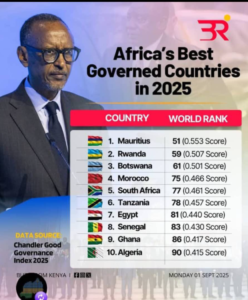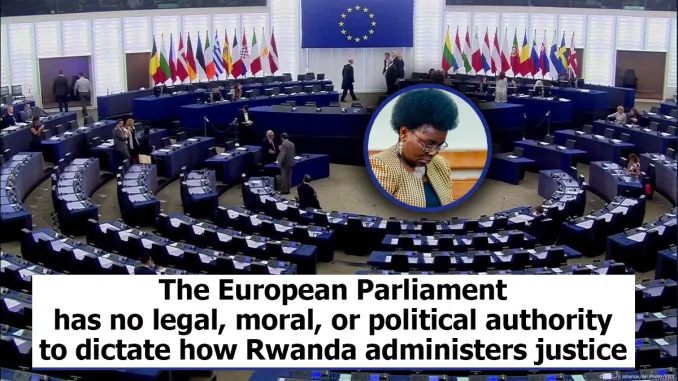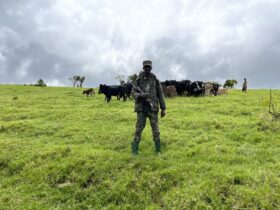A few days ago, Kigalians were shocked by images of three machete-wielding thugs attacking a woman.
Just as we thought we were out of trouble in the safest city in Africa and one of the safest in the world, three killers were filmed cutting an innocent woman to steal her cell phone.
My first thought was: are there people still moving around with machetes in 2025 Kigali?
Every year, genocide survivors are attacked and killed with machetes – methods not dissimilar to those used during the genocide against the Tutsi.
This predilection to violence has nothing to do with the income of the offenders. The killers are usually neighbours, fellow farmers, etc. Two years ago, it was a motor taxi driver caught on camera attacking an innocent woman. A motorist’s average income is between RwF 300,000 and 800,000 monthly. This is a decent income. Motorists’ propensity to criminality remains high because hate mongers like Victoire Ingabire have made them a recruiting ground.
Today, Ingabire is in prison for gathering Rwandan youth she identified as “Hutu” – not to encourage them to join TVET programs, design projects, and access SACCO’s micro-finance. She recruited an Eastern European mercenary to give them a webinar on public unrest, chaos, and urban terrorism, for weeks on end at her house.
For that, she had to convince the poor young boys – who later denounced her to the police – that they were oppressed. “Your oppression doesn’t meet the eye, that’s why you aren’t aware of it, she said to them, but deep down you are oppressed, due to your ethnicity.”
If Ingabire cared so much about the “oppressed youth”, she could have started an NGO to fundraise support from her Dutch handlers and teach them microprojects. She could have taught them human rights, democracy, and peacebuilding. She could have asked her European support to assist her in building a library, a basketball court. They went and found her terror experts instead.
Her operation’s codename: “Shira ubwoba udahungetwa ugahungeta” “Stop being afraid, so that you aren’t enslaved”. Such oppressive, obsolete Kinyarwanda, that refers to people as tetanised slaves – no doubt also designed in her Europe-based hate labs..
The RPF-led government’s language is empowering, as are the names of individuals as well as programs. No one is referred to as “Umuhungetwa” by the RPF. No one is afraid. People are “Intore”, “cadres”, “winners”, heroes”, etc.
Reversed panopticism.
Western NGOs can’t stop informing us that we are afraid, that we live in a “climate of fear”. They hammer the message so hard on us that we might indeed become afraid of a chimeric creature hovering above our heads. It is a reversed form of Jeremy Bentham’s “panopticon”.
 In his 1975 book Discipline and Punish, Michel Foucault used Jeremy Bentham’s Panopticon prison model to illustrate panopticism, a form of social control where constant surveillance, or the idea of it, leads to self-discipline. While Foucault was referring to a police state, in this case, it is the Western media, parliaments, and hate-mongers that are churning out messages of fear among Rwandans to infuse potential despair and chaos.
In his 1975 book Discipline and Punish, Michel Foucault used Jeremy Bentham’s Panopticon prison model to illustrate panopticism, a form of social control where constant surveillance, or the idea of it, leads to self-discipline. While Foucault was referring to a police state, in this case, it is the Western media, parliaments, and hate-mongers that are churning out messages of fear among Rwandans to infuse potential despair and chaos.
Every day we hear: “Rwanda is a vitrine. Behind the glittering towers, the trimmed gardens and cleanliness of its streets and people, lies oppression (western media); there is hunger (genocide ideologues)”. Painting Rwanda as some sort of Potemkin facade. Such a facade indeed, the second best governed country in 2025, with near-100% universal healthcare, free education, subsidised housing, 85% access to electricity and record life expectancy…
The idea is not to help those allegedly oppressed Rwandans see better days; it is to use them as avatars to negate Rwandans’ and Paul Kagame’s achievements.
“Abaturage barashonje” (People are hungry).
Genocide ideologues continue to influence segments of our society – notably through social media, claiming that “the people are hungry”. In principle, it is not proper for a Rwandan adult to admit in public that one is hungry. And it is not the role of the state to feed people, at least not in the RPF’s conception of good governance.
A Rwandan citizen must be empowered by the welfare state to have an income that secures their own basic needs, to transcend basic instincts and remain dignified, and to think big and graduate from poverty.
Ingabire’s mission isn’t to emancipate Rwandans – or Hutus. Her mission is to keep them in a state of oppression within what she claims is a Tutsi-led government (all Western media call it that). She imagines that’s how she can justify why her mother, father, and husband committed the genocide against the Tutsi.
European countries defend her to negate Rwandans’ agency and justify their “mission civilisatrice”. If Rwandans aren’t hungry or oppressed, how does it leave them room to intervene?
These messages, language, actors, and incidents have been in this region since the late 1950s. They are now commonplace in Eastern DRC among FDLR, Wazalendo, and MONUSCO, among relatives of genocide perpetrators exiled in the West; all who happen to have direct ties with both Victoire Ingabire and some members of the European Parliament on Felix Tshisekedi payroll.
















Leave a Reply